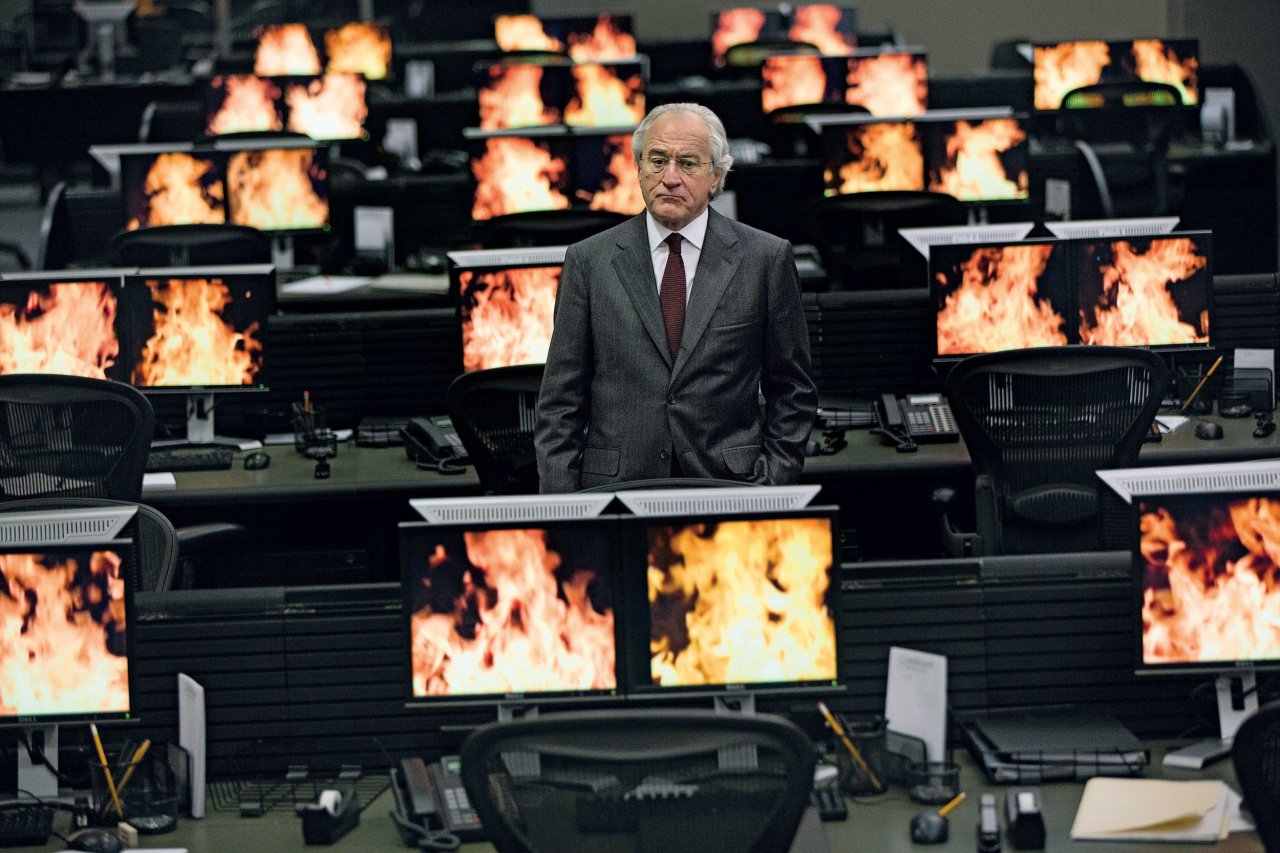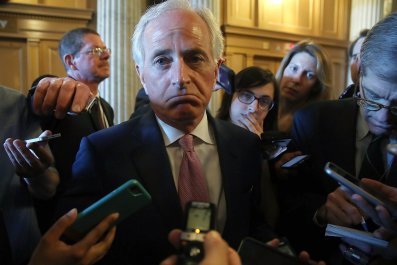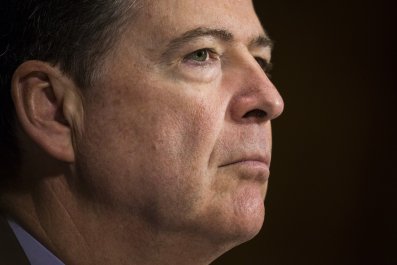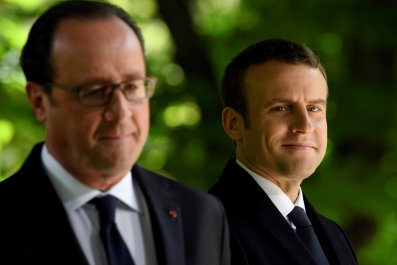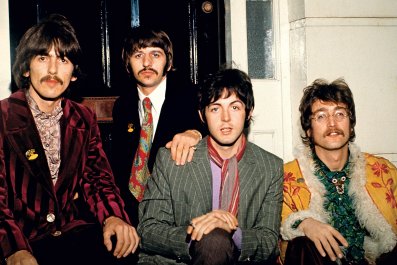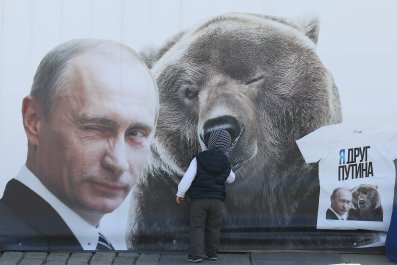Updated | As Bernie Madoff in the HBO-movie The Wizard of Lies, Robert De Niro occupies a space at the center of the movie similar to the space we see Madoff occupy at the center of his family's life. They are both glum, forbidding presences who demand respect and banish all light and joy. You can't avoid them but no one really who comes into contact with them expects any real pleasure.
De Niro doesn't give a bad performance, exactly. He's not slumming. But there's no pleasure, no juice to his acting—not even the pleasure of portraying Bernie Madoff as one miserable son of a bitch.
De Niro isn't entirely at fault. Neither the script, by Sam Levinson, Samuel Baum, and John Burnham Schwartz, from the book by Diana Henriques, nor Barry Levinson's direction, gets very far into Madoff. Maybe because there's just that not far to go. In the movie's final scene, Madoff, being interrogated by a New York Times' reporter, bristles that a newspaper article has compared him to Ted Bundy. He demands to know if his interviewer thinks he's a sociopath. But for the preceding two-and-a-quarter hours, sociopathy is all we've seen of Madoff, telling telling his clients bald-faced lies to draw them deeper into his pyramid scheme when he needs their cash to prop it up. When his sister-in-law wants to invest her life savings, he doesn't bat an eye. There's no rule that says the vile have to have depth, and there is nothing in the screenplay or in De Niro's performance that suggests there's much to learn about Bernie Madoff, who destroyed lives without a tremor of conscience.
The movie might have been stronger had it focused on three of the lives he destroyed—his loyal wife Ruth (Michelle Pfeiffer), and his sons Mark (Alessandro Nivola) who committed suicide in 2010, and Andrew (Nathan Darrow), who died of cancer in 2014. The Wizard of Lies is scrupulous about just who were the most sinned against of Madoff's victims. In a scene near the end, Andrew addresses a writing class and tells them that his suffering and that of his brother and mother can't begin to compare to the people who were wiped out by Madoff's scheme. But the movie explores what it means to discover that the privileged life you've led has been at the horrific—in some cases fatal--expense of others
The movie links the Feds' certainty that the Madoff brothers were in on the scheme with the public's rush to judgment that they were. There are some people, among them some who have tried to follow the money trail, convinced that the family knew. The Wizard of Lies makes a convincing case otherwise—mainly because De Niro plays Madoff as such a controlling megalomaniac you can see why the family would choose to just not rile him. (It's hard not to find it telling that Madoff's sons were the ones to turn him in.) The only affecting scenes here involve the brothers and Ruth. As Mark, Nivola is especially fine, capturing the torment of an essentially decent guy who obsesses over the press treatment he and his family are given, treatment in which the possibility that they might be telling the truth was barely considered. Nivola's taste is such that given what some actors might seize as an opportunity to fall apart, he chooses to play Mark's destruction as a quiet implosion. Pfeiffer, who employs a broad New York Jewish accent and looks to have taken pounds off her already slim frame for the role, has that tense stringy look that, in rich New York women, is often mistaken for beauty. It's an almost unwritten role. The strength of Pfeiffer's performance is how she captures a woman shocked into consciousness when the perfidy of the husband she never questioned becomes undeniable. Pfeiffer's spiky actor's intelligence deserves better, but she puts some meat on an undernourished role.
The Wizard of Lies begins with Madoff's scam being revealed, going forward to show how his world came down, and backward to show how the scheme began in the first place. It's not a terrible piece of work, but the most you can claim for it is a kind of bloodless competence. What it needs is the kind of shpritz that animated Levinson's movies back when he was working with a comic sensibility. It needs something like the back-and-forth of the guys from Levinson's Diner, who would have taken one look at Bernie Madoff and proclaimed, "what a chazzer."
This article originally misstated that Robert De Niro was at fault when it should have said he is not at fault.



